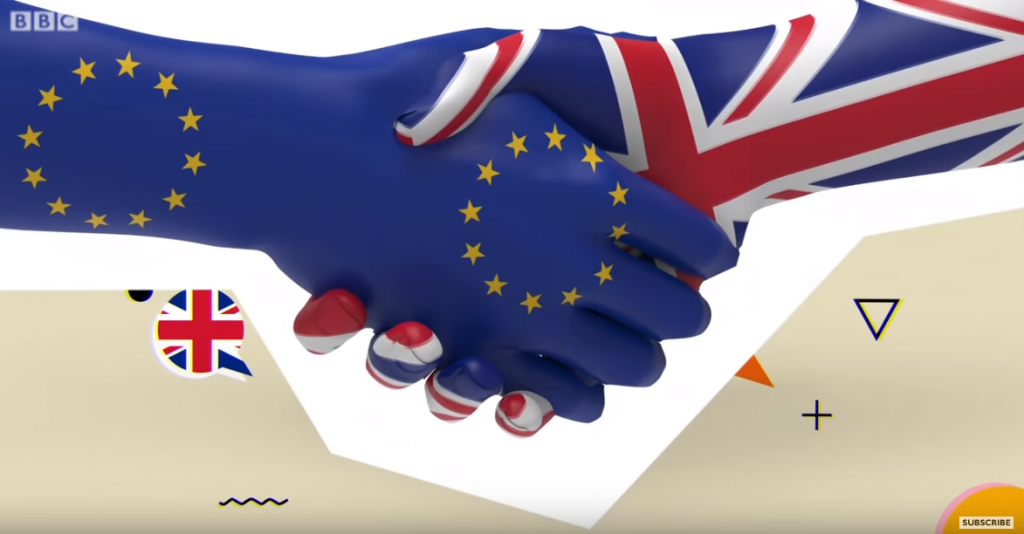What's Next for Brexit?
With the UK now having left the EU, and the transition period underway, it’s time for businesses to start preparing for a new trading landscape. But where should they start, and which key dates could impact their plans, as the UK/EU trade negotiations begin?
Nick Farmer, international advisory partner at accountancy firm, Menzies LLP, explains what we can expect to see in the coming year.
Although the UK left the EU on 31 January, it will remain part of the EU customs union and single market until 31 December 2020. This means that during this transition period, businesses can continue to trade in the EU without tariffs, customs checks or other regulatory restrictions. For many, it’s basically business as usual for now.
Additionally, EU Directives will continue to apply during the transition period, and this can assist with eliminating withholding taxes on dividend, interest and royalty payments. However, as the UK has formally left the EU, there may be immediate implications for such payments from third countries where reliance is being placed on a tax treaty. For instance, this can arise in tax treaties with the US, where the limitation on benefits provision may require EU/EEA membership to benefit from reduced rates of withholding taxes.
Trade negotiations between the UK and EU will be ongoing throughout 2020, with the hope that a new UK/EU trade agreement will be in place by the end of the year. In relation to trade with non-EU territories, the UK currently benefits from EU trade agreements that cover more than 70 countries, and these will also fall away at the end of the year.
With so many new trade relationships to be forged before then, it is clear that these trade negotiations are likely to dominate the political agenda in 2020. Businesses may be tempted to wait to see if the current transition period will be extended, but this seems unlikely, as an extension of one or two years would only be possible if both the UK and EU agree to it, before 1 July 2020, and the UK government has currently ruled out this option.
It is clear that these trade negotiations are likely to dominate the political agenda in 2020.
Throughout the transition period, it will therefore be important for UK-based businesses to keep a close eye on the progress of all ongoing trade negotiations, paying particular attention to areas of the world where their goods or services are being sold. They should consider what trade agreements they are currently taking advantage of, and how they could adapt their footprint or trading activities if negotiations take a turn for the worse.
The US is an important export market for many UK companies, and the government is hoping to secure a favourable trade deal. However, there are some potential deal breakers in play, including the UK’s proposed Digital Services Tax, which could cause the US to impose punitive tariffs on selected UK imports. The forthcoming post-Brexit budget statement on 11 March could bring an announcement on this subject.
Among the key changes to take effect from the start of 2021 are the removal of EU tax directives. These are important to businesses that have activity in the EU. For instance, the Parent-Subsidiary Directive currently allows money to flow from EU subsidiaries to a UK-based parent company, without incurring a withholding tax liability whereas, after 31 December, reliance on tax treaties may result in local withholding tax of between 5 and 10 percent. Similarly, the removal of The EU Interest and Royalties Directive will affect cross-border interest and royalty payments made into a UK-based corporate entity in the same way.
[ymal]
In preparation for the potential VAT and customs changes from 1 January 2021, businesses should consider mapping supply chains and pinpointing where tariffs, including import VAT and customs duties, may apply. Customer and supplier contracts should be reviewed in respect of terms of sale and delivery, in order to check which party is the importer of record and ensure the relevant Economic Operator Registration and Identification (EORI) numbers have been applied for.
Completion of customs declarations must be addressed, and key responsibilities within the business established. Employers should be asking questions about whether their staff are suitably trained, if additional staff may be required, what systems may be necessary, and where potential additional costs for undertaking the work, either in house, or externally through an agent, may arise. Quantifying these factors as far as possible can ensure they are in the best position to take advantage of any additional support that may be needed, for example, grants from HMRC.
If import VAT and customs duties are due to be paid, the cash flow impact of paying and reclaiming this should be considered, along with the actual cost of incurring customs duties, which are not reclaimable and so may affect pricing.
Businesses must start preparing for a very different trading and fiscal landscape from the start of next year. While there is still much uncertainty surrounding Britain’s free trade negotiations, there are clear steps that businesses can take now to mitigate the financial effects of the post-Brexit landscape.





















